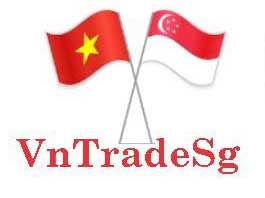Vietnam’s trade activity has been badly hurt by the coronavirus disease (Covid-19) outbreak over the past months. Nevertheless Vietnam has so far contained the outbreak relatively well and more export opportunities are expected to arrive over the coming months.
Surplus amid difficulty
Vietnamese shark catfish are still a favourite of consumers as exports to many markets enjoyed decent growth in the first quarter of 2020. According to VASEP, the association of seafood producers and exporters, Vietnam’s total shark catfish exports were estimated at US$267.8 million as of mid-March.
In the first half of March alone, exports to the US rose by 18.8% over the same period in 2019. Shark catfish export to Hong Kong (China) was restarted in mid-February and is returning to normal, with revenues reaching US$13 million in the first half of March, up US$1 million compared to the whole of February.
Shark catfish is one of the exports trying to overcome difficulties in increasing exports amid the complex developments of the coronavirus outbreak which has forced many of Vietnam’s major trading partners to close their borders to prevent the spread of the virus.
The difficulties for Vietnam’s exports in the short term was predicted as soon as the outbreak showed signs of widespread infection outside China. But at this time, under the direction of the government, ministries took a wide range of measures to facilitate enterprises by cutting administrative procedures and supporting them in seeking out new markets and orders.
As a result, Vietnam’s exports still increased by 0.5% to US$59.08 billion, despite a 0.7% drop in total exports and imports. Although export growth in the first quarter was the lowest since 2003, this is in line with the trend in global and regional trade as China’s exports plummeted 17%, the Republic of Korea’s fell by 1.5%, while Thailand’s and Japan’s decreased by 4.1% and 0.8% respectively.
In this context, state-owned enterprises were a highlight as their exports increased by 8.7% to US$18.65 billion, compared with a 2.9% decline in the foreign direct investment sector.
It is notable that Vietnam posted a trade surplus of US$2.82 billion, while the figure for the same period of 2019 was US$1.46 billion. Although a great deal of difficulties still lie ahead, such results have demonstrated the effectiveness of both the government’s and the business community’s response measures and determination.
What to expect in coming months?
As the Covid-19 situation in Europe, the United States, ASEAN and the Middle East is worsening, disease-stricken countries’ travel restrictions will continue to affect Vietnam’s exports in the times ahead and create disruptions to the supply of materials.
In addition, enterprises are also worried about labour shortages, especially in labour-intensive sectors such as the garment and footwear industries.
According to Phan Thi Thanh Xuan, General Secretary of Lefaso, the Vietnam Leather, Footwear and Handbag Association, the source of input materials has been restored but is not diverse enough to meet manufacturing requirements. In the meantime, many customers have discontinued their orders due to the coronavirus.
But there are also positive expectations for the times ahead. Economist Pham Tat Thang said that Vietnam’s main exports such as rice and fresh fruits and vegetables are still in demand and such demand could be even higher when the Covid-19 crisis is resolved. Thang added that as China has by now essentially contained the coronavirus outbreak, this is an opportunity for Vietnam to step up exports to the world’s second largest economy.
The EU-Vietnam Free Trade Agreement (EVFTA), due to take effect in July, is also expected to boost Vietnamese exports. If the EU can contain the outbreak in the second quarter and restore economic activity in the third and fourth quarters, the EVFTA will create an open door for Vietnamese goods such as garments, footwear, timber, mobile phones and electronics.
Source: Nhan Dan Online














